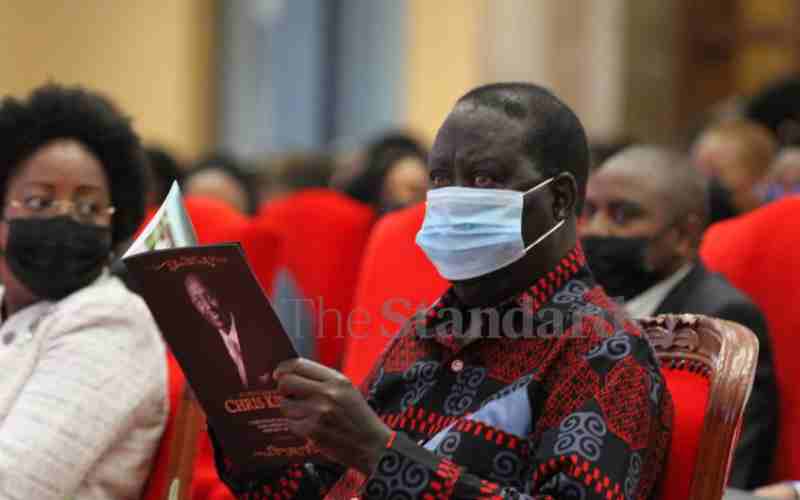×
The Standard e-Paper
Smart Minds Choose Us

ODM leader Raila Odinga during Chris Kirubi's memorial service at the Faith Evangelist Church, Karen Nairobi. [Elvis Ogina, Standard]
Business mogul Chris Kirubi was among influential people who convinced former Prime Minister Raila Odinga to embrace a coalition government in 2008.